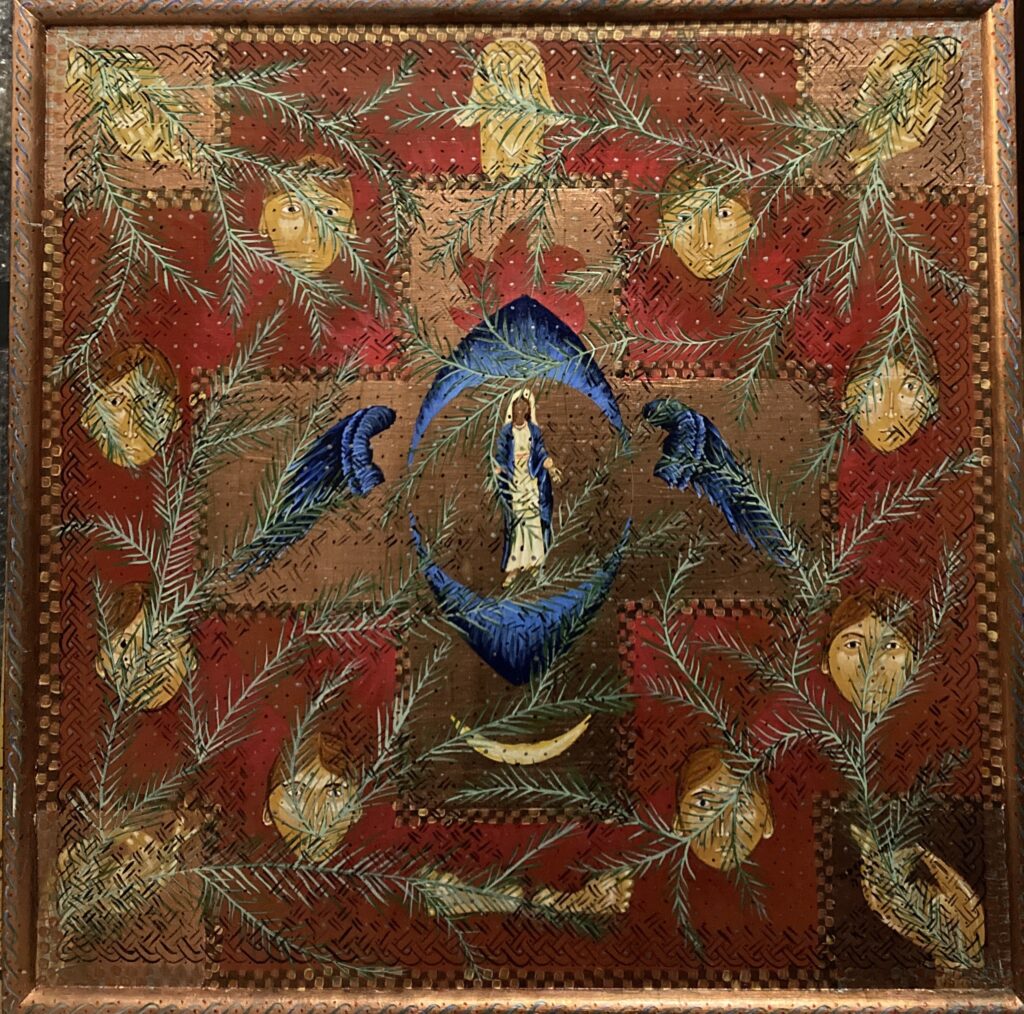Seekers recognizes that any member of the community may be called upon by God to give us the Word, and thus we have an open pulpit with a different preacher each week. Sermons preached at Seekers, as well as sermons preached by Seekers at other churches or events, are posted here, beginning with the most recent.
Click here for an archive of our sermons.
Feel free to use what is helpful from these sermons. We only ask that when substantial portions are abstracted or used in a written work, please credit Seekers Church and the author, and cite the URL.
“HIV, Faith and the 23rd Psalm” by John Hassell

July 21, 2024
Ninth Sunday after Pentecost
This sermon was delivered based on readings from the 23rd Psalm and from the late Randy Shilts’ book, And the Band Played On: Politics, People and the AIDS Epidemic. [The text of the sermon continues below, fiollowing the psalm and the excerpt from Randy’s book.]
“Only Human?” by Cynthia Farrell Johnson

July 14, 2024
Eighth Sunday after Pentecost
Good morning church. Thank you for the opportunity to worship with you and share a bit about my journey.
Please pray with me: May the words of my mouth and the meditations of our hearts be acceptable to you, Gracious God, our Rock and Our Redeemer. Amen
In studying the texts for this morning’s sermon, I found a common theme throughout. Praise and celebration were at the heart of the texts. It was interesting to see the many ways that celebrating God could take place. Making music with various instruments, shouts and sacrifices, sharing cakes and bread as part of a celebratory event, or simply recognizing that the gift of God’s grace is worthy of our praise.
“Simply Human in Times of Chaos” by Jeanne Marcus

July 7, 2024
Seventh Sunday after Pentecost
Last week, during our time together, we celebrated an important anniversary: it was 20 years ago last week that we moved from our first home at 2025 Massachusetts Avenue to our space here on Carroll Street. Our celebration provided us a wonderful opportunity for us all to hear our community’s stories together—whether we were remembering what we lived through back then, or have come to Seekers since that time, and were hearing now the challenges and set-backs that we can laugh at now, and the expansive happiness of the times that things all were functioning beautifully.
“The Word 20 Years Later” by Several Seekers

June 30, 2024
Sixth Sunday after Pentecost
Peter Bankson: The Decision to Buy on Carroll Street
Today we’re celebrating the 20th anniversary of the walk when we carried the processional cross and banner up the hill from Dupont Circle to mark our arrival here. But the move from 2025 Massachusetts Avenue began long before that sunny Sunday afternoon.
“A Place Called Tsadek” by John Morris

June 16, 2024
Fourth Sunday after Pentecost
In this sermon I want to continue the conversation about anti-Semitism that has emerged at Seekers in recent months. A lot of what I have to say begins with my father, and of course this is Father’s Day. Let me say first, then, that you’re going to hear things about this man that are highly critical, but he also had many endearing qualities – kindness, humor, a reverence for education – and I always loved him.